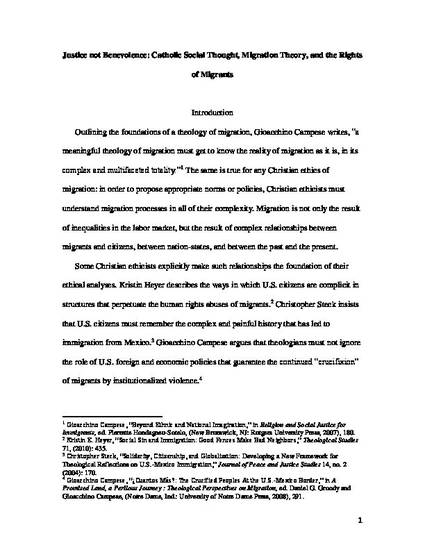
Although there are many migration theories that purport to explain why people migrate, many theologies and ethics of migration rely on neoclassical migration theory, which views migration solely as the result of poverty and unemployment in sending countries. This paper reviews various migration theories in order to argue that Catholic social teaching on migration has primarily relied on neoclassical theories of migration. This over-reliance on neoclassical migration theory has led to flawed policy recommendations and ethical analyses.
Christian ethics must respond to the reality of migration as described by migration systems theory, which suggests that migration systems are actually initiated by the policies of receiving countries, primarily colonial and organized guest worker recruitment. The ethical principles required to respond to migration are not only benevolence and hospitality. Christian ethics must begin by seeing migration as a problem of exploitative relationships between citizens and migrants.
Copyright © 2014 Taylor & Francis.
Available at: http://works.bepress.com/tisha-rajendra/3/

This is an Accepted Manuscript of an article published by Taylor & Francis in Political Theology on July 2014, available online: http://www.tandfonline.com/10.1179/1462317X13Z.0000000007